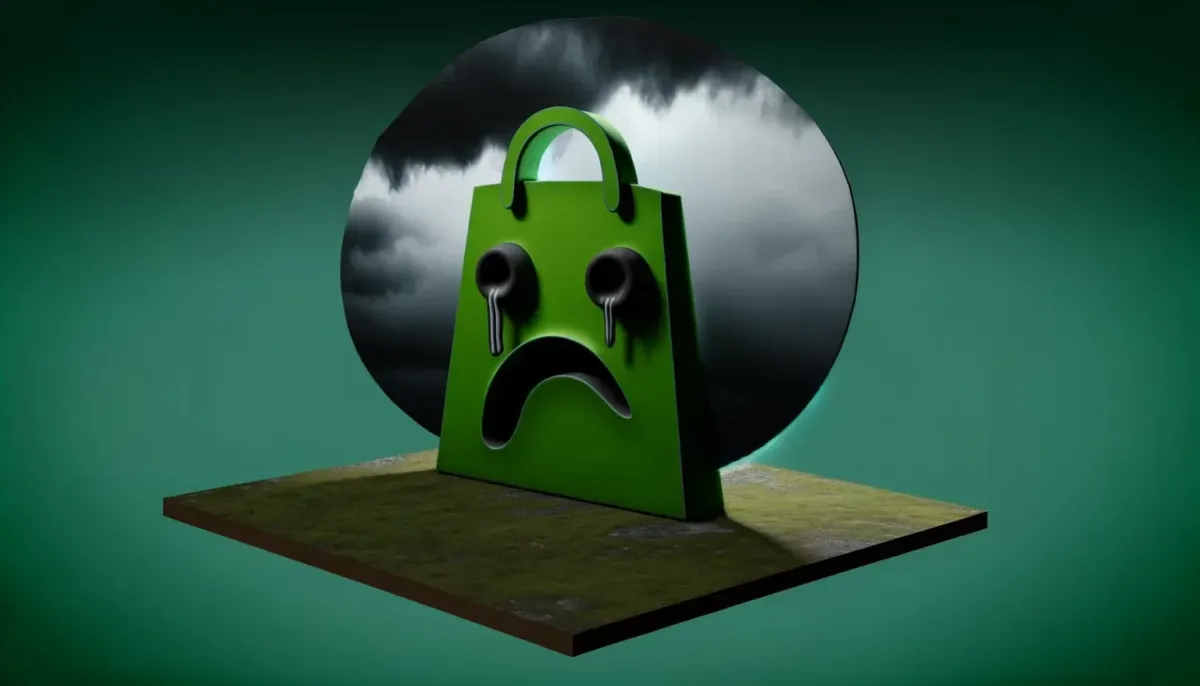Why You Need To Stop Using Shopify in 2024

Shopify has its advantages and disadvantages, but it is without a doubt one of the largest eCommerce platforms on the internet. It has numerous tools and features that make it simple to set up and maintain an online store. However, Shopify offers advantages and disadvantages that may make it excellent or unsuitable for you. These advantages and drawbacks will be discussed in this article, and I’ll tell you why you need to stop using Shopify.
What is Shopify?

Shopify is a comprehensive e-commerce platform that empowers individuals and businesses to create their own online stores. It offers a wide range of customizable templates, tools for selling products online, managing inventory, processing payments, and analyzing sales data. With its user-friendly interface, Shopify caters to both beginners and seasoned merchants looking to expand their digital footprint. As a cloud-based solution, it ensures accessibility and scalability, making it a popular choice for entrepreneurs aiming to launch and grow their online retail operations efficiently.
Who uses Shopify in 2024?
Shopify is used by a diverse range of users, from entrepreneurs and small business owners looking to launch their first online store, to large corporations seeking a reliable and scalable e-commerce solution. It caters to a variety of industries including retail, fashion, electronics, and more. Independent artists, crafters, and creators also use Shopify to sell their products directly to consumers. Furthermore, Shopify’s flexibility and extensive app ecosystem make it a favored choice among dropshippers and those involved in print-on-demand businesses. Its ease of use and comprehensive set of features attract users at all levels of business, from startups to established brands looking to expand their online presence.
Why You Should Stop Using Shopify in 2024?

1. You Don’t Own Your Shop
When you use Shopify for your ecommerce website, you are at risk of losing your store if Shopify decides to close its doors, as it’s a hosted platform, which means you don’t own the source code or in another words, you’re not the real owner of the shop you have created with Shopify.
2. Flexibility and Customizations Issue
Unfortunately, there are certain limits to the customization feature.
Shopify, unlike other platforms, employs its Liquid framework for theme customization. This program is unfamiliar to many web designers. As a result, many users may have difficulties customizing their themes. You or your web design team may spend hours learning how to use the Liquid setup.
3. Lock-In Mechanism
When it comes to leaving Shopify, the company is not very helpful. The lock-in mechanism prevents you from moving your business elsewhere.
If you decide to quit Shopify, keep in mind that you can only take your CSV report with you. So, before you establish your Shopify online store, consider whether you intend to stay with the platform for a long time.
4. Email Hosting Unsupported
Email hosting is not supported by Shopify. As a result, you can only launch your online store using the web hosting option.
5. Blogging Feature is Really Bad
There is no category for the blogging feature. As a result, you must include tags in your post, as well as inflexible blog layouts, an outdated editor, and other factors.
Plus, implementing a third-party extension for blogging on Shopify is a difficult task.
6. Hidden Fees
Shopify’s plans are reasonable at first glance, but when you delve deeper, you’ll discover that launching your e-commerce business with Shopify may be extremely costly.
For starters, regardless of which plan you select, you will incur additional transaction fees if you utilize a payment provider other than Shopify Payments.
Next, all Shopify plans include credit card processing costs, and the fees decrease marginally if you choose a more expensive plan.
If you wish to add further features, such as a loyalty program or advanced order tracking, you will have to spend extra by purchasing and installing an app from Shopify’s marketplace.
7. Shopify is Not a Content Management System
Shopify is not a content management system, and it is designed solely for the sale of products. If you want to include a lot of rich material on your site, such as videos, carousels, and so on, in addition to the items you wish to sell, you should avoid Shopify.
8. You Can’t Control Your Data
Shopify is less intuitive, and your business’s growth rate decreases significantly over time. It isn’t as adaptable as other e-commerce platforms, therefore you may lose out on potential customers. You can certainly enjoy your early stages with Shopify, but if you want to take your business to the next level, self-hosted e-commerce systems like WordPress are highly recommended.
FAQs
Should I stop using Shopify in 2024?
If you’re looking for open-source software that you can own and require greater customization for your e-commerce platform, then you might consider alternatives to Shopify.
What's the best alternative to Shopify in 2024?
If customization and full ownership are your top priorities, then WooCommerce is a better choice for you.
What's the difference between Shopify and WooCommerce?
The main difference between Shopify and WooCommerce lies in their platform structure and user control. Shopify is a hosted e-commerce platform that’s easy to use and comes with an all-in-one subscription, offering hosting, security, and a range of built-in tools for a monthly fee. It’s known for its simplicity and quick setup. WooCommerce, on the other hand, is an open-source plugin for WordPress websites, offering more customization and control over your store. It requires you to handle hosting, security, and updates, but allows for extensive customization and is potentially more cost-effective for those with technical expertise.
Conclusion
Should I stop using Shopify in 2024?
To secure your business’s future and ensure complete control over your data and store ownership, you should stop using Shopify. WooCommerce, powered by WordPress, stands out as a highly recommended e-commerce solution. It offers unparalleled flexibility and autonomy, making it an ideal choice for entrepreneurs committed to long-term success and customization in their e-commerce ventures.



